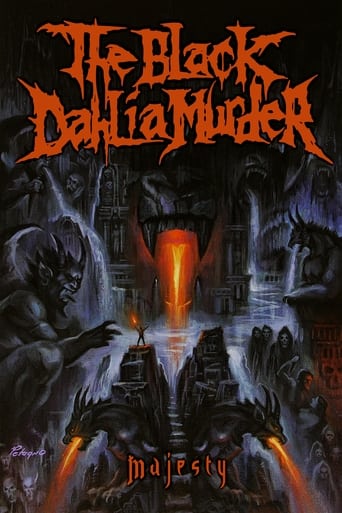tieman64
"The Black Dahlia" is about the 1947 murder of Hollywood starlet Betty Short, but it is wrong to simplify the movie as a modern film noir. Director Brian De Palma's sensitivity explodes what people think of as the noir genre, the director turning "Dahlia" into something more personal: a consideration of the price paid by those who live in the Hollywood environment, either by working within the film industry or under the sway of movie mythology.Early in his career, De Palma combined an interest in movies with the radicalised social principles of the day. Influenced by the French New Wave and especially the political concentration of Godard, De Palma satirized/subverted movie traditions, particularly the excesses of German Expressionism.Mix this style with a little 60's anarchy, and you have a filmmaker who's sceptical about the structures of classical Hollywood storytelling. As such, all De Palma's early films were highly counterculture. Consider "Hi Mom!", "Phantom", "Rabbit", or "Greetings", the only movie of its time to address draft-dodging.Young De Palma satirised movie forms, learning to master them while revising them. This has confused many critics, who only latch onto the source of De Palma's improvisations but don't connect to the critical mind that drives them.So to understand "Dahlia" it is necessary to recognise that De Palma is a genre satirist with moral feeling. That "Dahlia" is more concerned about penetrating the Hollywood-noir genre, upending its conventions and emphasising its social and political bases. Like "Casualties of War", De Palma is appalled by the history he must recreate, just as he was appalled when draft dodging students were his subject.And so "Dahlia" plunges into politics with its first scene, a 1940's race riot in which the police casually watch white servicemen beat up Latinos. It is here where our two heroes meet. One's called Bucky, the other Lee, but it doesn't take long for them to become coded and victimised like movie stars, dubbed "Fire and Ice" by the LAPD, their hot and cold temperaments reflecting their contrasting styles.From here on the film more resembles Altman's "The Player" than "The Big Sleep", the film less interested in mystery than the nightmares that exist beneath Hollywood's glittery veneer. And like most of De Palma's films, the plot hinges around an ineffectual hero who somewhat incompetently reconstructs truths which reside in plain sight, directly under his nose.Interestingly, De Palma's usual approach to sex and violence is completely revoked. The bombastic sexual/violent imagery of "Body Double" and "Scarface" have all been replaced with the discretion used in his more political films. This is a moral and political choice. The film's many shots of wounded actresses, extra's in cattle carts and girls forced into nudie flicks (as well as dying fathers) are not intended to excite or titillate, they're meant to disturb.Likewise, the "satirical" or "operatic" De Palma only appears when the audience is introduced to corrupt and opulent characters. When the villain delivers her monologue, De Palma frames her on a balcony, flanked by red curtains and lit like an opera singer. Here De Palma's previously subdued camera suddenly goes baroque, linking hypocrisy with theatricality and Hollywood itself. In De Palma's world the image, the performance, is always a lie.A brilliant crane shot at a street junction signals the point at which the film's two mysteries split apart and veer in different directions. Interestingly, both mysteries are solved, but neither is resolved. And in typical De Palma fashion, the film's chief murder is itself an image, both a work of art and a cry for help. We're always aware that the film's two murderers, grotesque and scarred, were themselves the monstrous product or ugly underside of a kind of "beautiful", legitimized victimisation."Dahlia" eventually becomes De Palma's personal statement about the dark heart of Hollywoodland, a place the director has always approached with apprehension. "Are you capable of playing sadness," De Palma, playing a casting director in the film, asks Elizabeth Short, the line echoing Swan's request in "Phantom of Paradise" ("Would you give me your voice?"). What Swan takes in "Paradise", Hollywood exploits naturally whilst pretending to be "paradise". De Palma sees this clearly, and his noir protagonist (Josh Hartnett) will come to see this as well. Hartnett, himself a clueless actor, is thus cast to perfection. Hardly a Bogart, he's a well-meaning but severely deluded gumshoe. He takes the fall in a boxing match, and is constantly belittling himself via voice over.This uselessness, this futility, continues when Betty starts flirting with De Palma during an audition (he mocks her for recounting a story about her dream boyfriend, who ironically then dies). As we watch more and more of Betty's screen tests, we see her grow more and more disenchanted, echoing De Palma's own experience within the Hollywood machine. Even before she died, Betty's fairytale had become a broken dream.Many are dissatisfied with the film's "love triangle", which isn't sexually charged and lacks the chemistry of a Bogey and Bacall. But there's intentionally no "heat" or "sexuality" in this film. When we finally do see actress Scarlett Johansson strip, it's only so the audience can view the past scars etched horrendously into her body by an ex boyfriend. There are only wounds in this film, and so much of the emotion "Dahlia" generates relies on the audience tapping into its sad, wounded world.As Bucky states, a "fairytale band-aid" covers everything, even the relationships in the film. All the character's lead fractured lives, even De Palma, who mirrors himself by playing the cynical director of the screen tests, even while his work of art aligns itself firmly with Betty's torment.9/10 - Hugely atmospheric, "Dahlia" rewards repeat viewings and may be De Palma's best. Note too that the studio chopped an hour off of De Palma's original 3 hour cut (which was hailed as a masterpiece by Ellroy).

